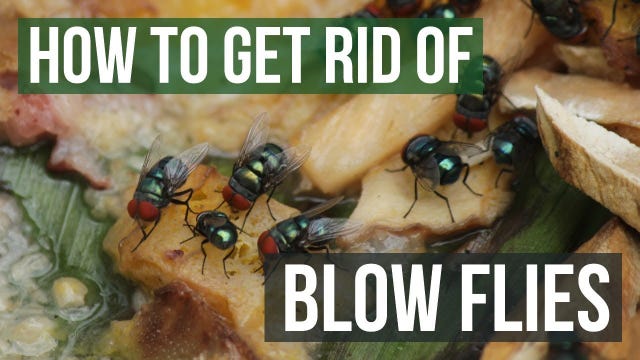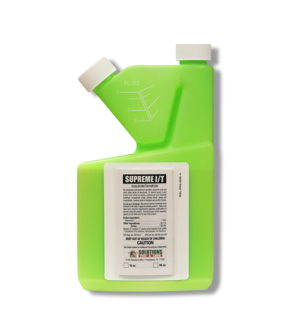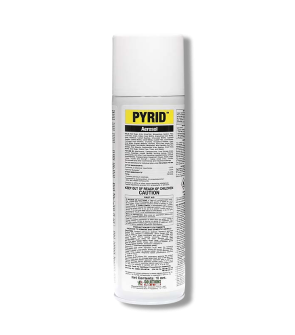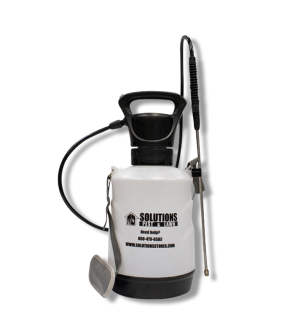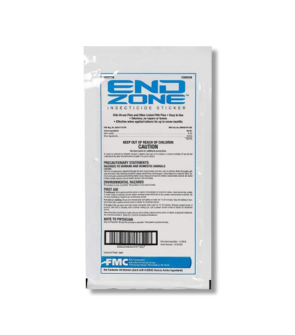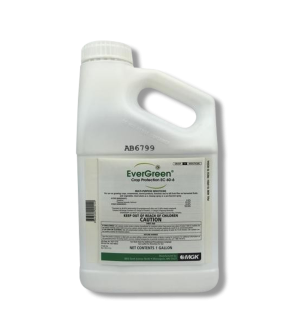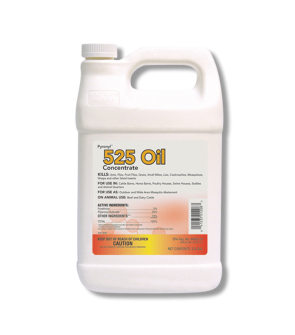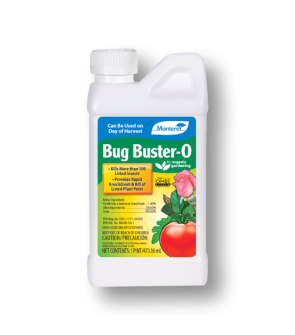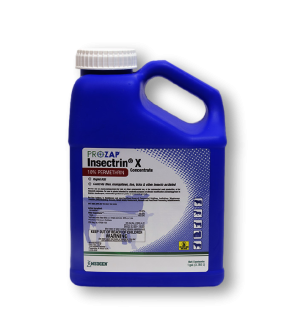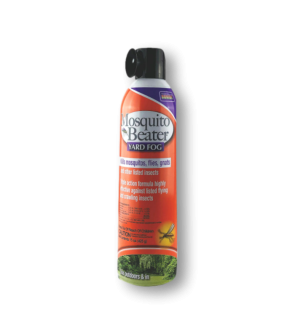Gain access to personalized product screening, the best pricing, rewards, and more!
Most Effective Products
Blowfly Control: How To Get Rid of Blowflies
This page is a general blow fly control guide. Using the products and methods suggested, you will get control of blowflies. Follow this guide and use the recommended products, and we guarantee 100% control over blowflies.
Blowflies, also known as bottle flies, are larger flies known for their metallic bluish-green color. They create a very audible buzzing sound while flying and typically scavenge around rotting meat or strong-odorous foods. Blowflies tend to be around urban areas and aren’t typically found indoors. When they are indoors, this could be a big problem as they may breed and lay eggs, which would cause a considerable infestation.
Blowflies can be found all over the world and emerge in nearly any area that humans occupy. Blowflies get the “blow” part of their name from infesting rotted carcasses of dead animals during their larvae/maggot stage when the carcass is bloated. Blowflies lay hundreds of eggs on rotting flesh, which will grow into larvae and eat the flesh until nothing is left.
Blowflies commonly gather around dead animals and are often discovered near meat processing plants, garbage dumps, and slaughterhouses. They typically enter homes when they detect filth or food indoors and will come from near and far to feast, usually through any gaps and openings around the house. Most people who deal with blowflies usually have a rodent problem.
If you have a blowfly problem around your home, our DIY guide below will show you how to eliminate the infestation using expert techniques and affordable professional-grade products.
Blowflies can invade homes if the sanitation around the property is not kept up. Leaving pet droppings, not taking out the trash, and leaving decaying organic matter in the house can attract blowflies. They can also enter homes through small cracks and holes outside your structure.
Blowflies are capable of spreading many diseases through their constant eating habits. They have been known to transmit cholera, typhus, dysentery, and even salmonella to food serving surfaces and eating utensils.
Identification

Start by identifying and being certain that the pests you encounter are blowflies. Listed below are some common characteristics of blow flies:
- Blow flies are identified by their metallic iridescent color with green and yellow hues. They are also slightly larger than your average fly, measuring half an inch long. Under a magnifying glass, you might be able to detect small hairs on the body.
- Another simple way to identify them is by observing where they are found. Blowflies are most commonly found near dead animals and around manure and garbage, making them a staple in farms and livestock.
Use the description and image above to help you correctly identify blowflies on your property. If you are not totally sure, contact us, and we will assist you with proper identification.
Inspection

After you confirm that you are dealing with blowflies, you can proceed with an inspection to gauge the size of your infestation and where to focus your treatment applications.
Where To Inspect
Blowflies can be spotted outdoors around garbage bins, in your yard where there may be organic matter or feces, and near compost piles. Blowflies found indoors may mean something is decaying nearby. Focus your search in kitchens, under and around appliances, near garbage bags, or even inside the home's light fixtures.
What To Look For
You're looking for odors, animal carcasses, or decaying or decomposing material (garbage, feces, etc.). Inside your home, look in all the rooms where blowflies have been seen and see if you can smell any foul odors. By following the smell, you might be able to pinpoint the location of the carcass. Commonly, blowflies may be present because a rodent may have died behind a wall or in a crawl space, attracting these pests from the outside.
In the yard, search for excessive animal droppings inside garbage bins and compost piles if you have them. If you can locate the source of the infestation (animal carcass, garbage, feces, etc.), you must remove it from your property. If you can pinpoint the location where they are most commonly found, you will apply treatment there.
Treatment
Once you have discovered blow Fly activity, it is time to begin treatment. Remember to read all product labels, follow the application instructions on these labels, and stay safe by wearing personal protective equipment (PPE).
To achieve complete control of blowflies, locate the rotting source that attracts them and sanitize your home. Afterward, trap any remaining blowflies with Musca-Stik traps. As an added control measure, spray your yard and perimeter with Supreme IT Insecticide and treat lingering blowflies indoors with Pyrid Aerosol.
Step 1: Locate The Breeding Source and Conduct Sanitation
Before utilizing insecticides, you need to get rid of blowfly breeding grounds attracting these pests to your property.
Start by cleaning your kitchen and bathrooms and taking out the garbage can. Ensure no spills or leftover trash are at the bottom of the garbage cans. Get rid of rotten or uneaten fruit or food that might attract blowflies. Seal all foods in plastic containers. Clean out litter boxes if you have them. If you can find the animal carcass or source of the infestation, remove it and put it far away from your property.
In the yard, pick up after your pets and remove their excrement, and if you have one, cover or remove your compost pile.
Step 2: Trap Flies with Musca-Stik
Musca-Stik is an insecticide-free trap that uses a combination of bright orange paper, pheromones, and glue to lure and capture flies. To use, sprinkle the supplied attractant into the catch basin at the end of the stick. You can then hang the stick in areas where you have seen fly activity.
Step 3: Outdoor Treatment with Supreme IT Insecticide
After cleanup, most of the blowflies will leave the premises. To make sure they don't stick around or return, spray Supreme IT Insecticide. Supreme IT is a powerful insecticide that targets over 75 insect pests and repels and kills flies away from your property. It also has residual (or long-term effects) that will last for up to 90 days.
Determine how much Supreme IT you will need by calculating the square footage of your selected treatment area. To do this, measure the treatment areas' length and width in feet and multiply the two values (length x width = square footage).
Apply 1 ounce of Supreme IT with one gallon of water to treat 1,000 sq. ft.
Mix the appropriate amount of Supreme IT based on your calculations inside your handheld pump sprayer with water.
Conduct a perimeter treatment around your property by spraying 3 feet up and 3 feet out from the foundation of your structure. While spraying this way, target window frames, door frames, eaves, soffits, rain gutters, fascias, garage doors, electrical/plumbing penetrations, and cracks and crevices.
Keep people and pets away from the areas treated until the spray completely dries.
Step 4: Indoor Treatment with Pyrid Aerosol
Pyrid Aerosol is a pyrethrin aerosol designed for quick contact kills of various pests, including blowflies. Use it as a space spray where you have seen insect activity. The product does not have a residual, so flies must come in direct contact with the spray to be affected.
Apply at the rate of 1 to 3 seconds per 1,000 cubic feet.
Spray toward the ceiling and make your way to the front, starting where blowflies have been seen (kitchens, bathrooms, near garbage bags).
Do not let people or pets enter the home until 15 minutes have passed and you have opened windows, turned the air conditioner on, and properly ventilated your whole house. Also, wipe food serving counters clean after ventilating the home.
Prevention
After you have successfully removed the blowfly invasion, you will want to make sure they don't make a return.
- Preventative measures should be implemented, such as maintaining a regular cleaning schedule by taking out the garbage daily, wiping counters, picking up after your pets, and cleaning any spills that develop.
- Keep all foods in tight-fitting plastic containers, and do not let fruits rot away or attract possible flies.
- Keep your bathrooms clean, and do not let mildew build up in the tub or shower area.
- To keep flies out of your property, seal any cracks and crevices on the outside of the structure or near windows with caulking or copper mesh.
- Finally, spray Flex 10-10 every 90 days on the outside of your structure, to keep flies and other insects off your property.
Key Takeaways
What are Blowflies?
- Blowflies are a disgusting pest that often invades areas where there is decaying filth like garbage, dead animal carcasses, and manure.
How to Get Rid of Blowflies
- To get rid of blowflies, locate and eliminate the filth source that is attracting the pest, then apply a combination of Musca-Stik traps, Supreme It Insecticide, and Pyrid Aerosol to kill the invading population.
Prevent Blow Fly Reinfestations
- Prevent blow fly reinfestations by maintaining a good sanitation schedule and sealing cracks and crevices around your property to make it harder for these pests to sneak in.






